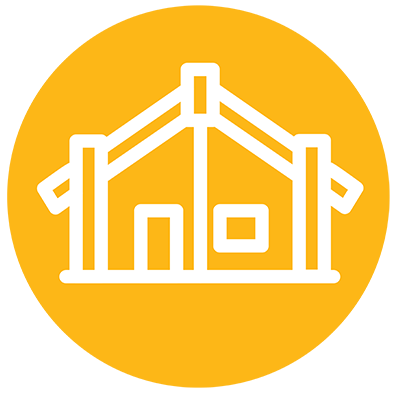 Te Awakairangi Māori Mental Health and Addiction is one of four workstreams in the Mental Health and Addiction Change Programme. It gives precedence to addressing the health inequities that exist in Te Awakairangi (Hutt Valley) for Māori whānau presenting with mental health difficulties.
Te Awakairangi Māori Mental Health and Addiction is one of four workstreams in the Mental Health and Addiction Change Programme. It gives precedence to addressing the health inequities that exist in Te Awakairangi (Hutt Valley) for Māori whānau presenting with mental health difficulties.
Over 150 people from a range of organisations came together to explore Māori-led solutions for the future of Māori mental health and addiction services, in a way that was grounded in Te Ao Māori (Māori worldview) thanks to facilitator Awhitia Mihaere.
/edit-upper-hutt-1.jpg)
The term wānanga offers flexibility and space, and therefore does not follow a strict schedule. This offered Awhitia the freedom to tailor the sessions to meet the unique needs of each group of people. In general, the first wānanga at each location (Wainuiomata, Lower Hutt and Upper Hutt) focused on connecting as a community and being able to whakawatea (heal) from any grief or loss (personal or collective) stemming from experiences with local mental health and addiction services.
Participants valued the opportunity for whānaungatanga - coming together to share thoughts, make connections, and explore ideas to improve pathways for services and access for tāngata whaiora.
“People who attended spoke with passion, commitment and drive for the improvements well overdue in the district,” said Project Manager for Te Awakairangi Māori Mental Health and Addiction workstream, De’arna Sculley, who organised the wānanga.
/edit-upper-hutt-3.jpg)
“There were also opportunities to learn about the numerous services that already exist in the region and the wonderful work happening in the community every day.”
With the group now familiar with each other, the second set of wānanga saw attendees brainstorming the tikanga and kawa (values and principles) for a model of care for the future Te Awakairangi Māori approach to service delivery, before coming together to ‘put the roof on the whare’ to complete the process and close the wānanga space.
Feedback revealed that participants felt they had taken a lot of learning from the wānanga, with some even using the wānanga as professional development hours. The general sense was that the community felt valued, listened to and hopeful for the outcomes of the wānanga moving forward.
/edit-upper-hutt-11.jpg) “It was really helpful having an understanding from the beginning and that (the process is) starting from a Māori approach, rather than a western medical approach,” said one person through feedback, with another saying, “What an incredible privilege to be witness to this historical moment.”
“It was really helpful having an understanding from the beginning and that (the process is) starting from a Māori approach, rather than a western medical approach,” said one person through feedback, with another saying, “What an incredible privilege to be witness to this historical moment.”
Overall the feedback was positive, with recurrent themes including:
Whanau ora - the need for the service to provide holistic care for the entire whānau, services pulling together to make sure all pillars of health for whānau are met in one place
Improving access - it is evident from the statistics that there are locations in the Hutt Valley that are not receiving the same level of care as others. Open door policy, outreach services close to home were common ideas
Wairuatanga - moving away from just diagnosis and treatment; integrating Te Ao Māori, rongoā Māori processes and spiritual wellbeing into care
Increasing the Māori workforce - growing the Māori workforce community, supporting rangatahi into education and Māori kaupapa roles
“It has been a privilege to have overseen the process of the wānanga and watch this kaupapa grow over the past few months,” says De’arna.
“The next steps include reviewing the feedback from the community to inform a model of care that will be the foundation for future Kaupapa Māori services in Te Awakairangi.”
De’arna and her team are committed to prioritising the voices of people with lived experience, and so are forging closer relationships with the lived experience team at Te Aka Whai Ora (the Māori Health Authority), as well as MHAIDS’ own Lived Experience Team.
Maintaining a close relationship with mana whenua is also a priority, to make sure work is taking place in partnership.
As the project starts to move to this next phase, governance and operational groups will be established to support this mahi.
E kore tēnei whakaoranga e huri ki tua o aku mokopuna
Our mokopuna shall inherit a better place than we inherited